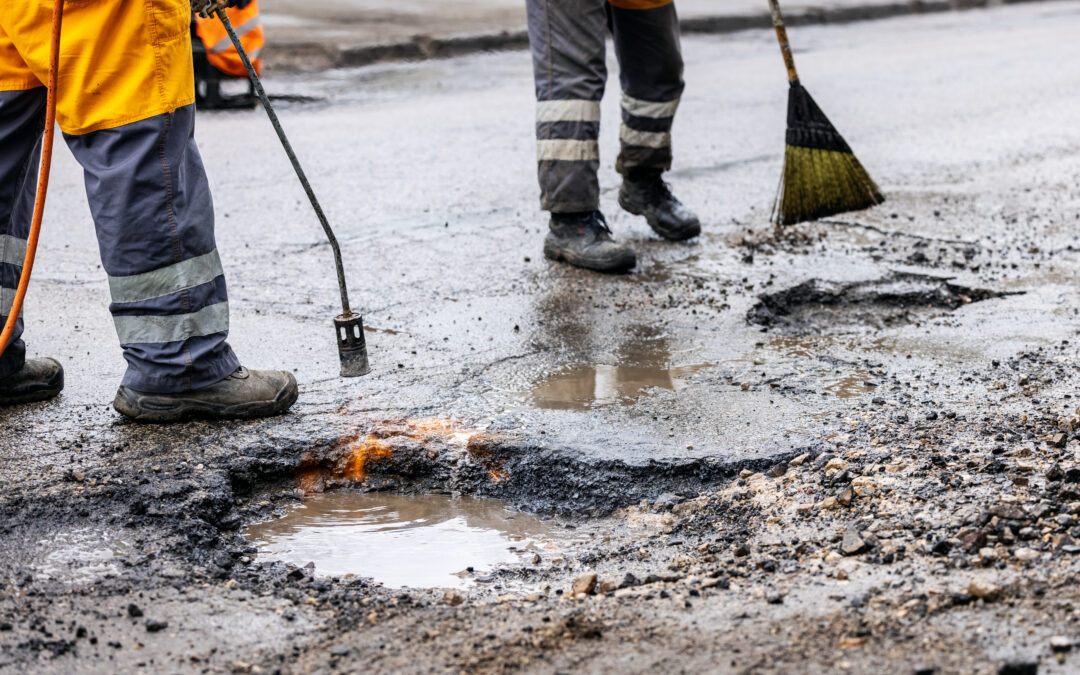This is an opinion piece written by Michigan State Representative Will Snyder (D-Muskegon) that appeared in Bridge Michigan. Read more here.
Last week was National Work Zone Awareness Week, which was designated by Congress to help raise attention for the people who have dedicated their lives to improving the roads and bridges millions of Americans use every single day.
There are a number of reasons why additional safety precautions need to be taken in and around road construction areas. Work zones often mean closed lanes and merging traffic; furthermore, the lanes that are used are usually narrower, compromising the integrity of the roadway.
Shoulder space is frequently nonexistent, and construction crews commonly rely on barriers for protection. Trucks and heavy equipment enter and leave the roadway to get to the job site, adding to an already challenging driving situation.
Most importantly, hardworking laborers are in or near the roadway, putting their lives at risk to get a job done, improve our roads, and make traffic flow smoothly and safely. Work zones are dangerous.
When you add speeding and unsafe driving to the mix, tragically, the results can be deadly. In 2021, far too many people in Michigan lost their lives in automobile accidents in and around work zones. According to the Michigan Department of Transportation (MDOT), there were 5,814 crashes — 19 of them fatal.
We all see the signs telling us to slow down. There are flashing lights and brightly colored road markers warning us in advance to obey the reduced speed limits, but with the increasing death toll, we need to do more.
That’s why I sponsored legislation — House Bills 4132 and 4133 — that would allow the state police and transportation department to work together to help end speeding in work zones. Upon agreement between the two departments, they could install automatic speed enforcement systems, which are proven to be effective tools to increase safety.
However, my legislation comes with safeguards to protect the rights of drivers. No one is trying to issue drivers surprise tickets from hidden cameras. The goal is to get people to reduce their speed and provide consequences for repeat offenders.
My proposal would also require signage to clearly warn drivers that not only are they entering a work zone, but also specify that an automated speed enforcement system is in place and operating. The system would only be active when workers are present, with research proving that they can help reduce speed limit violations by an average of 84 percent.
Although no sum of money can compensate for the value of a human life, it is a known fact that most drivers tend to modify their behavior only when faced with consequences. Hence, imposing financial penalties is essential in bringing about change, but it is advisable to provide a warning period before implementing them.
Subsequent offenses may incur higher fines, but the goal is for drivers to understand the gravity of their actions from the very beginning.
Finally, my legislation would require the state to provide proof the speed limit was violated and create an appeal process if you weren’t the one driving your car. These are commonsense safeguards that protect drivers and roadside workers.
The goal isn’t to trap people with punitive fines, but instead change driver behavior, making work zones safer for everyone. I believe this is a comprehensive approach to help solve a very serious problem on our roadways.
The Michigan Department of Transportation has an ongoing campaign called TZD: Toward Zero Deaths. Unfortunately, we know we’re a long way from reaching the goal of zero deaths — there have been 236 fatalities on Michigan roads so far in 2023, a number I very much want to change.
The safety of Michiganders is important to me, as I am sure it is to you, too. Work zones create added dangers, which is something we can prepare for and get right. Please work with me — let’s slow down and save lives.

